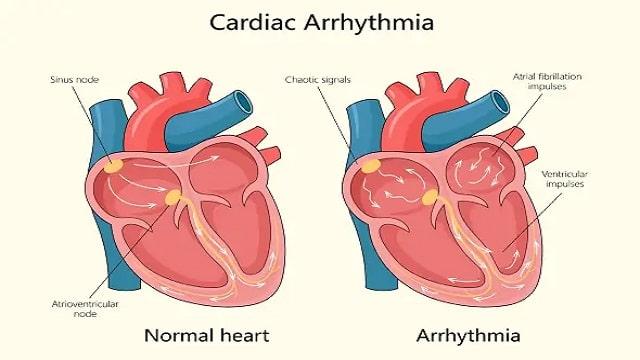
Anosmia Symptoms, Risk Factors & Treatment | Diseases List A-Z
What is Anosmia? Anosmia is the inability or decreased ability to smell.
It can be permanent or temporary depending on the cause.
In fact, some people have this condition from birth, while others lose the ability to smell due to some condition.
Experts estimate that anosmia and hyposmia affect between 3 and 20 percent of the human population.
Hyposmia is a decreased ability to smell.
Sometimes people refer to this condition as smell blindness.
This condition can be permanent or temporary.
Smelling a particular odor is a complex process involving both the brain and the nose.
When a person smells a scent, air enters the nose and odor molecules attach to receptors on nerves that sense smell, called olfactory nerves.
These nerves line the olfactory epithelium, which is the tissue that lines the nasal cavity.
When odor molecules from the environment stimulate these nerves, they send signals to the brain.
The brain receives the olfactory information and processes it into a scent that a person can identify.
A disturbed sense of smell can affect a person’s quality of life, especially when tasting food because the sensation of food taste is a combination of the senses of smell and taste.
Therefore, sufferers will experience appetite disorders which can result in malnutrition.
In addition, this condition can also cause sufferers to be unaware of danger signs around them, for example not being able to detect the smell of stale food, the smell of a gas leak, or the smell of smoke from a fire.
Symptoms of Anosmia When people experience anosmia, they may notice that they can no longer smell identifiable odors.
On the other hand, people who are born with anosmia due to genetic differences may not realize they have anosmia, having never had the ability to smell.
Neurodegenerative diseases, such as Parkinson’s disease and Alzheimer’s disease, can cause loss of the sense of smell.
If a person living with a neurodegenerative disease notices a loss of smell, they should seek medical evaluation as soon as possible.
Sometimes anosmia is an early sign of a neurodegenerative disease.
When a person can no longer smell, they cannot perceive odor warnings in food and the environment.
People living with anosmia may experience a lower quality of life-related to social interactions, eating, and mental well-being.
Risk Factors for Anosmia Some things that are risk factors for this condition are: Having a nasal infection or head trauma.
Aged over 60 years.
Suffering from neurodegenerative disease.
Taking medications that can cause anosmia.
Undergoing radiation therapy to the head or neck.
Causes of Anosmia In the past, this disorder occurred in many people who had COVID-19.
But overall, there are various other things that can cause disorders in the olfactory pathway that lead to anosmia, including: Obstructive Disorders Obstruction or blockage of the sense of smell is the most common cause of anosmia.
One cause of obstruction is inflammation, such as flu, rhinitis (colds), and rhinosinusitis.
In addition, the presence of lumps in the nostrils, such as nasal polyps, can also cause obstruction of smell.
Head Trauma Head injuries due to trauma are also one of the common causes of anosmia.
This is caused by a head injury which results in damage to the nose and sinuses which becomes a mechanical obstacle to being able to smell.
In addition, head trauma can also cause damage to the olfactory nerve.
Anosmia due to head trauma can be temporary or permanent depending on the type of damage that occurs.
Aging and Neurodegenerative Processes The aging process is a normal condition and is associated with a decrease in the ability to smell.
This is due to the loss of a number of cells in the olfactory nerve.
In addition, several neurodegenerative diseases, such as Alzheimer’s, Parkinson’s, and Lewy Body dementia also result in decreased ability to smell.
Congenital Disease Turner syndrome and Kallman syndrome are some congenital conditions that can cause permanent anosmia.
Radiation Therapy Anosmia is one of the side effects of radiation therapy for head and neck cancer.
Diagnosis of Anosmia Loss of smell can be difficult to detect.
Your doctor may ask you questions about your current symptoms, examine your nose, perform a complete physical exam, and ask about your medical history.
Your doctor may also ask about when the problem started, whether all or only some types of smell are affected, and whether or not you can taste food.
Depending on the answers, the doctor may also perform one or more of the following tests: CT scan, which uses X-rays to create detailed images of the brain; MRI scans, which use radio waves and magnets to look at the brain; X-ray of the skull; Nasal endoscopy to look inside the nose.
Anosmia Complications People with anosmia may lose interest in food leading to malnutrition and weight loss.
People with anosmia should also ensure that they have a working smoke and fire alarm in their home at all times.
They should also be careful with food storage and natural gas use, as it may be difficult to detect spoiled food and gas leaks.
Recommended precautions include: Properly label food with expiration dates; Read labels on chemicals, such as kitchen cleaners and insecticides; Be careful when using electrical equipment.
Anosmia Treatment Treatment depends on the cause.
If the loss of smell is due to COVID-19, a cold, allergies, or a sinus infection, it will usually go away on its own within a few days.
You should consult a doctor if anosmia does not go away after cold or allergy symptoms subside.
Treatments that may help with anosmia caused by nasal irritation include: Decongestant; Antihistamines; Steroid nasal spray; Antibiotics, for bacterial infections; Reduce exposure to nasal irritants and allergens; Quit smoking.
Loss of smell caused by nasal obstruction can be treated by removing whatever is blocking the nasal passages.
This removal may involve procedures to remove nasal polyps, straighten the nasal septum, or clear the sinuses.
Unfortunately, older adults are more likely to lose their sense of smell permanently.
There is currently no treatment available for people with congenital anosmia.
People with partial loss of their sense of smell can add concentrated flavorings to foods to enhance their enjoyment.
Anosmia Prevention Because anosmia is a symptom of many health-related conditions, it cannot always be prevented.
However, there are several things that can be done to reduce the risk: Avoid toxic chemicals and the environment.
Do not smoke.
Wear protective gear when playing contact sports, as anosmia can be caused by brain injury.
.
Related Articles
health
Aquaphobia Symptoms, Risk Factors & Treatment | Diseases List A-Z
October 22, 2024

Aquaphobia is a type of specific phobia that is an irrational fear of something that does not pose much danger.
A person with aquaphobia has extreme fear or anxiety when thinking about or seeing water.
read morehealth
Arrhythmia Symptoms, Risk Factors & Treatment | Diseases List A-Z
October 22, 2024

Electrolyte imbalance in the blood.
Electrolyte levels, such as potassium, sodium, calcium, and magnesium can interfere with the heart’s electrical impulses, resulting in arrhythmias Drug use.
read morehealth
South Africa: Over 40 students hospitalised for suspected food poisoning
October 23, 2024

The information contained in this website is for general information purposes only.
The information is provided by BhaskarLive.
read more